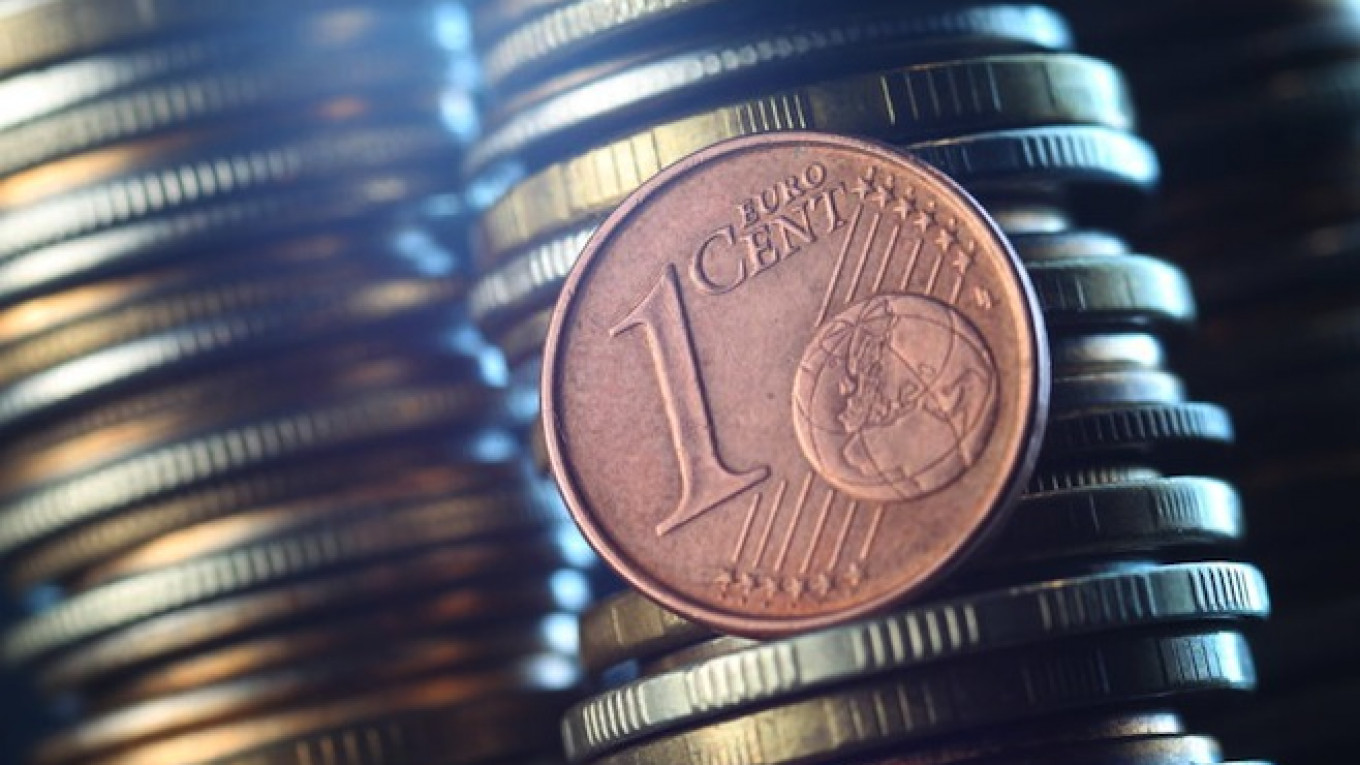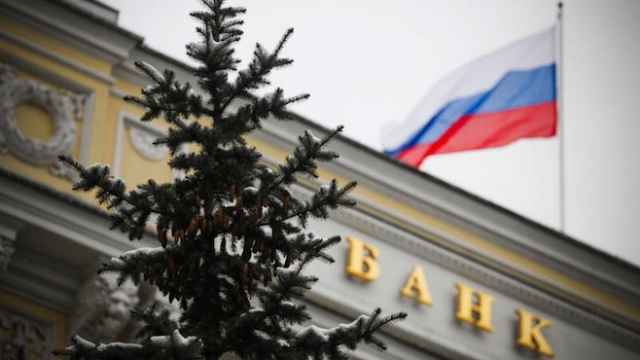The Russian ruble plunged when trading opened Wednesday as the Central Bank announced it would cap the amount of foreign reserves it spends to defend the currency.
The ruble fell to historic lows, diving to 44.98 against the dollar and passing the 56 euro mark shortly after 10 a.m. when the Russian markets opened after two days of national holiday.
The Russian currency's resumption of weeks of declines came as the Central Bank said in a statement that it would only spend $350 million of its foreign currency reserves each day to curb ruble weakness. Previously, the amount was unlimited.
“These changes will allow a significant increase in the flexibility of the ruble exchange rate and, at the same time, will facilitate the achievement of a balance of supply and demand on the currency market,” the Central Bank said in a statement.
The Central Bank's move towards a more free floating ruble, which it has said it will achieve by next year, is likely to spark fears that the ruble will accelerate its falls. The use of a trading corridor by the Central Bank as a guide for market interventions up until now had acted as a brake on the ruble's fall.
The regulator also said Wednesday that it will introduce a new 12-month foreign exchange repo auction, with the first expected to be held between Nov. 10 and Nov. 20.
“The Central Bank has finally done it — the ruble has de facto become a fully flexible currency,” said Dmitry Polevoy, ING Bank's chief economist in Russia, in a note to investors Wednesday.
The Central Bank spent over $30 billion in October to shore up the ruble, which has lost more than one-third of its value against the dollar since the beginning of the year.
A surprise decision by the Central Bank Friday to raise interest rates by 1.5 percent in an effort to bolster the currency did little to halt ruble declines.
The ruble is under pressure from a falling oil price, which is hovering around 4-year lows, and a spike in tensions in Ukraine following Russia's recognition of elections held Sunday in rebel-controlled areas in the east of the former Soviet country.
“In such conditions the perspective for the ruble look extremely cloudy,” economist Polevoy said.
A Message from The Moscow Times:
Dear readers,
We are facing unprecedented challenges. Russia's Prosecutor General's Office has designated The Moscow Times as an "undesirable" organization, criminalizing our work and putting our staff at risk of prosecution. This follows our earlier unjust labeling as a "foreign agent."
These actions are direct attempts to silence independent journalism in Russia. The authorities claim our work "discredits the decisions of the Russian leadership." We see things differently: we strive to provide accurate, unbiased reporting on Russia.
We, the journalists of The Moscow Times, refuse to be silenced. But to continue our work, we need your help.
Your support, no matter how small, makes a world of difference. If you can, please support us monthly starting from just $2. It's quick to set up, and every contribution makes a significant impact.
By supporting The Moscow Times, you're defending open, independent journalism in the face of repression. Thank you for standing with us.
Remind me later.






